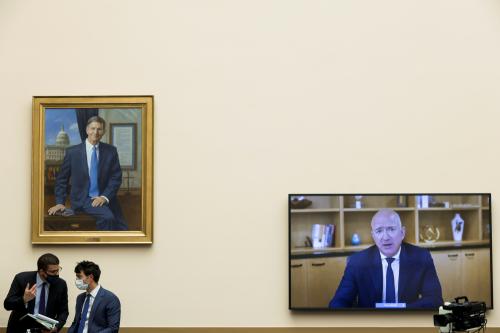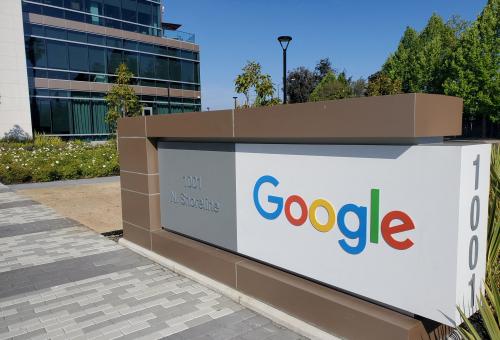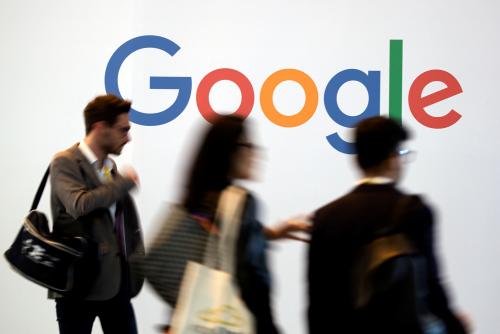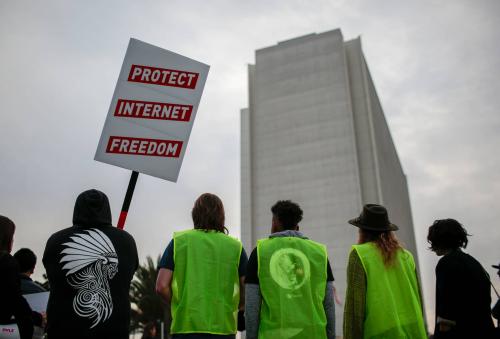Bill Baer served as Assistant Attorney General in charge of the Antitrust Division of the U.S. Department of Justice from 2013 to 2016.
The other shoe has dropped. Two weeks ago, the House Antitrust Subcommittee issued its report challenging the behavior of tech giants Amazon, Apple, Facebook, and Google. And on Tuesday, the Justice Department and 11 GOP state attorneys general filed a much-anticipated complaint charging Google with a long list of problematic behaviors intended, according to DOJ, to cement the company’s dominant share of online search.
DOJ goes out of its way to emphasize it is not challenging Google’s success in attracting consumers to its search engine. Instead, the problem is what Google did to foreclose competition once its product gained wide acceptance. In language that tracks the government’s last major monopolization case some twenty years ago against Microsoft, DOJ details how Google paid Apple billions to become the pre-installed search engine on the Safari browser, locking in most iPhone and Mac users, and how Google made its operating system open-source, but—once Android became popular—restricted usage to preference Google search.
This reads like a serious challenge to Google. But observers should perhaps curb their enthusiasm. This complaint is but one step in a process, the outcome of which is far from certain.
First, there will be a lengthy court challenge. Cases of this magnitude take years to resolve, and a trial is unlikely until at least 2022. And, however the court decides, appeals will surely follow. To put things in perspective, DOJ filed its lawsuit against Microsoft in 1998, and the case wasn’t resolved until late 2001, when the Bush Administration settled on terms that many thought a lot less than appropriate.
Second, Google is entitled to its defense and its day in court. Over time, we will see what its executives have to say. It will be instructive to learn how they defend their firm’s behavior and what evidence comes out in the course of legal discovery.
Third, the timing of the case—less than two weeks before the election—invites speculation about the manipulation of law enforcement to serve political ends. And we have seen that movie before. I suspect this likely explains why many state attorneys general chose not to join the case, at least for now. The timing is exquisitely problematic. And unnecessarily so.
Finally, the time required to investigate, initiate, and eventually conclude this lawsuit reinforces what Rep. David Cicilline (D-RI), chairman of the Antitrust Subcommittee, and my colleague Tom Wheeler have been saying. Antitrust values efficient markets, where consumers are in control and providers strive to satisfy. After-the-fact antitrust enforcement is not always the most timely and efficient way of dealing with markets dominated by one or a few competitors. They argue that forward-looking legislation and rulemaking may offer better ways of enshrining pro-consumer values and preventing anticompetitive behavior. Whether led by Donald Trump or Joe Biden, the next administration should think systematically and comprehensively about the power of tech companies and what needs to be done about it.
Amazon, Apple, Facebook, Google, and Microsoft are general, unrestricted donors to the Brookings Institution. The findings, interpretations and conclusions in this piece are solely those of the author and not influenced by any donation.







Commentary
Assessing the DOJ lawsuit against Google
October 21, 2020